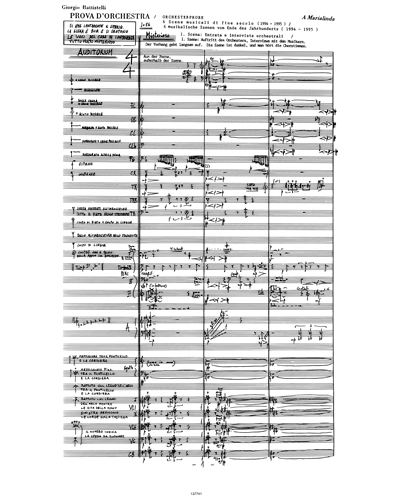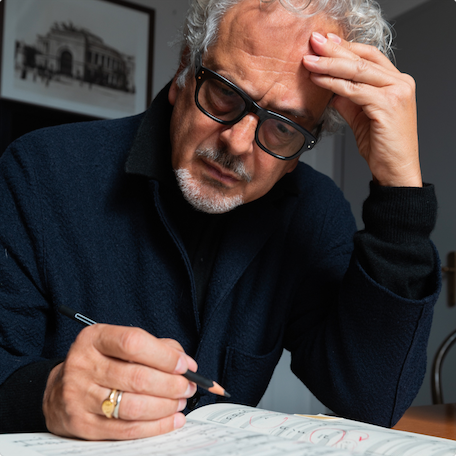
Giorgio Battistelli
84 pieces at nkodankoda sheet music library
over 100k editions from $14.99/month
Hassle-free. Cancel anytime.
available on
nkoda digital sheet music subscription


Editions
Annotate
Library
Perform
100k+ available Editions
More about Giorgio Battistelli
Giorgio Battistelli, born on 25 April 1953 in Albano Laziale, Italy, is renowned for his contemporary classical compositions. He has created nearly 20 operas with diverse themes including works like CO2, premiered at La Scala in 2015. Educated at the conservatory in L'Aquila, he has also embraced the legacies of mentors Stockhausen and Kagel. Battistelli's influence stretches through numerous artistic directions, from founding improvisation groups to directing esteemed musical programs.

Giorgio Battistelli sheets music on nkoda
Edition/Parts
Composer/Artist
Part
Source
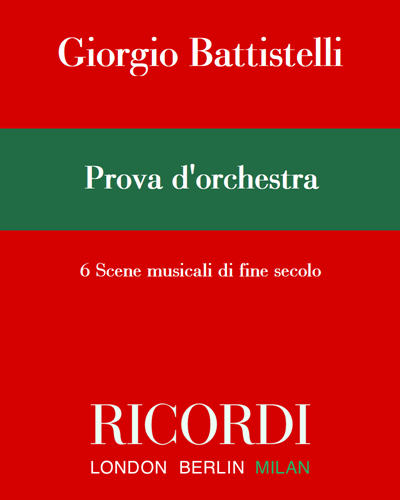
Prova d'orchestra
Giorgio Battistelli
Full Score
Ricordi
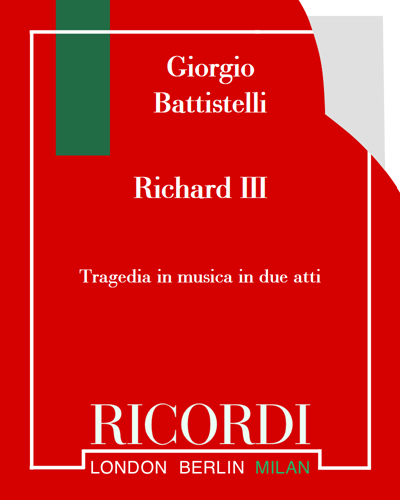
Richard III
Giorgio Battistelli
Opera Vocal Score
Ricordi
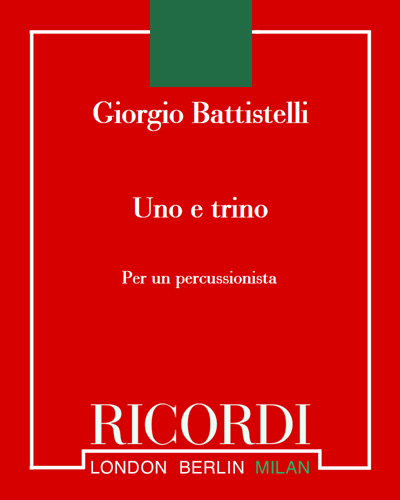
Uno e trino
Giorgio Battistelli
Percussion
Ricordi
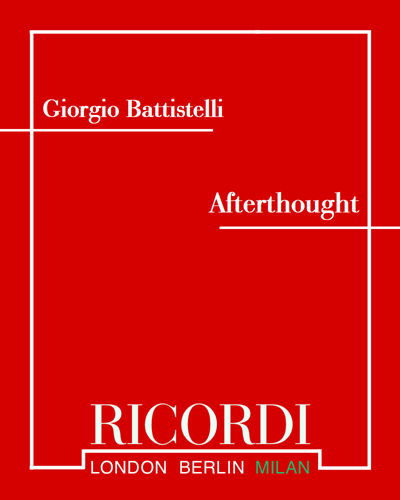
Afterthought (about a Shakespearean tragedy)
Giorgio Battistelli
Orchestra
Ricordi
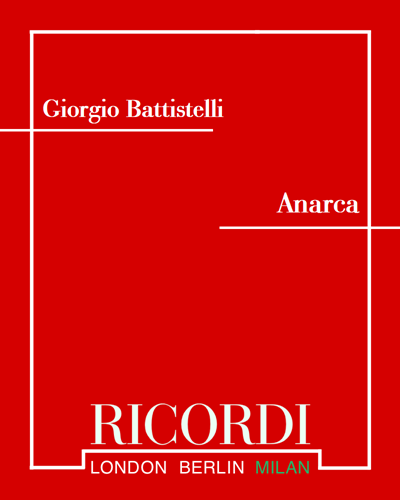
Anarca
Giorgio Battistelli
Orchestra
Ricordi
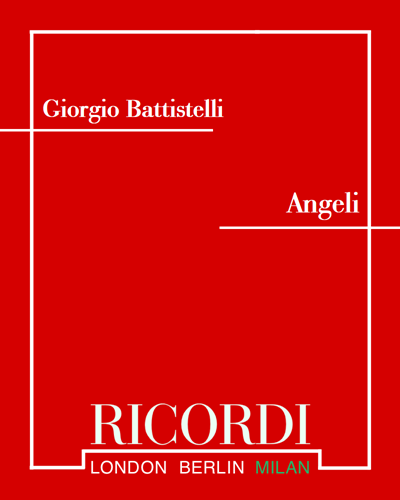
Angeli
Giorgio Battistelli
Children's Chorus & Orchestra
Ricordi
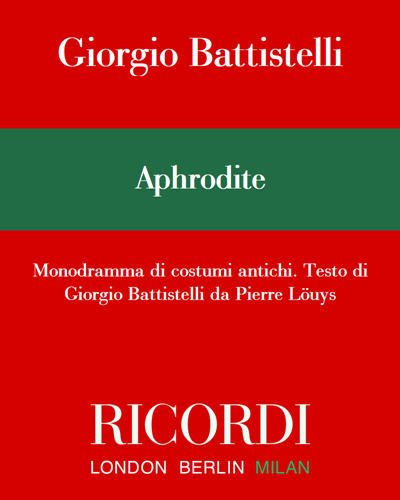
Aphrodite
Giorgio Battistelli
Operetta Score
Ricordi
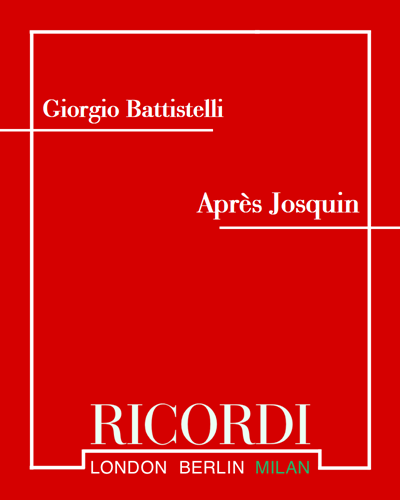
Après Josquin
Giorgio Battistelli
Orchestra
Ricordi
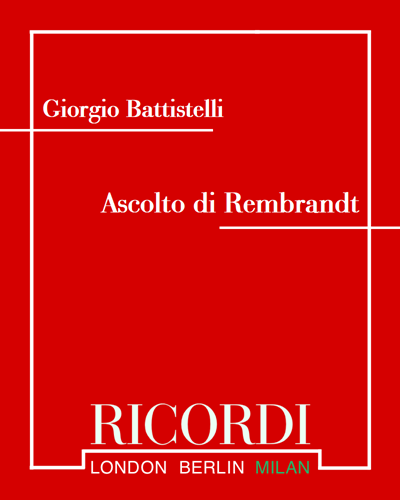
Ascolto di Rembrandt
Giorgio Battistelli
Full Score
Ricordi
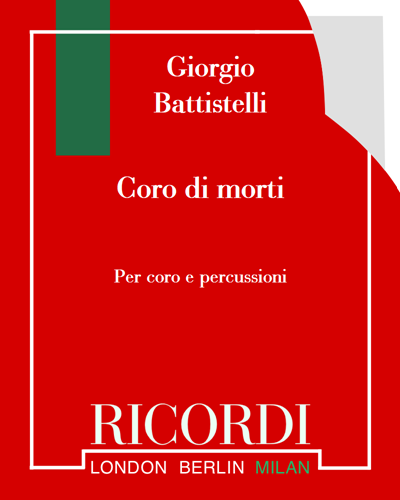
Coro di morti
Giorgio Battistelli
Mixed Chorus SATB & 2 Percussion
Ricordi
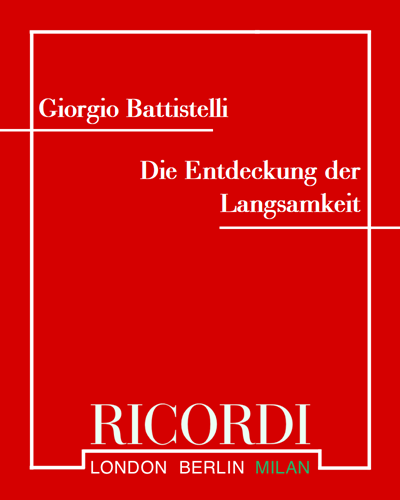
Die Entdeckung der Langsamkeit
Giorgio Battistelli
Full Score
Ricordi
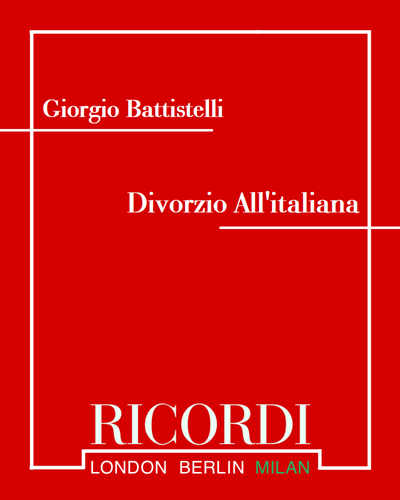
Divorzio All'italiana
Giorgio Battistelli
Chorus & Orchestra
Ricordi
INSTITUTIONAL PARTNERS
PUBLISHERS PARTNERS
TESTIMONIALS


